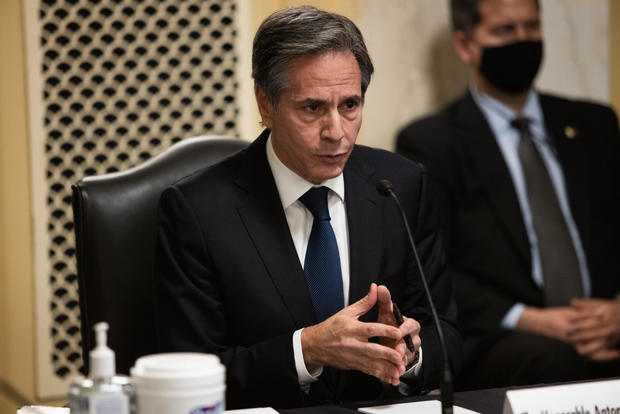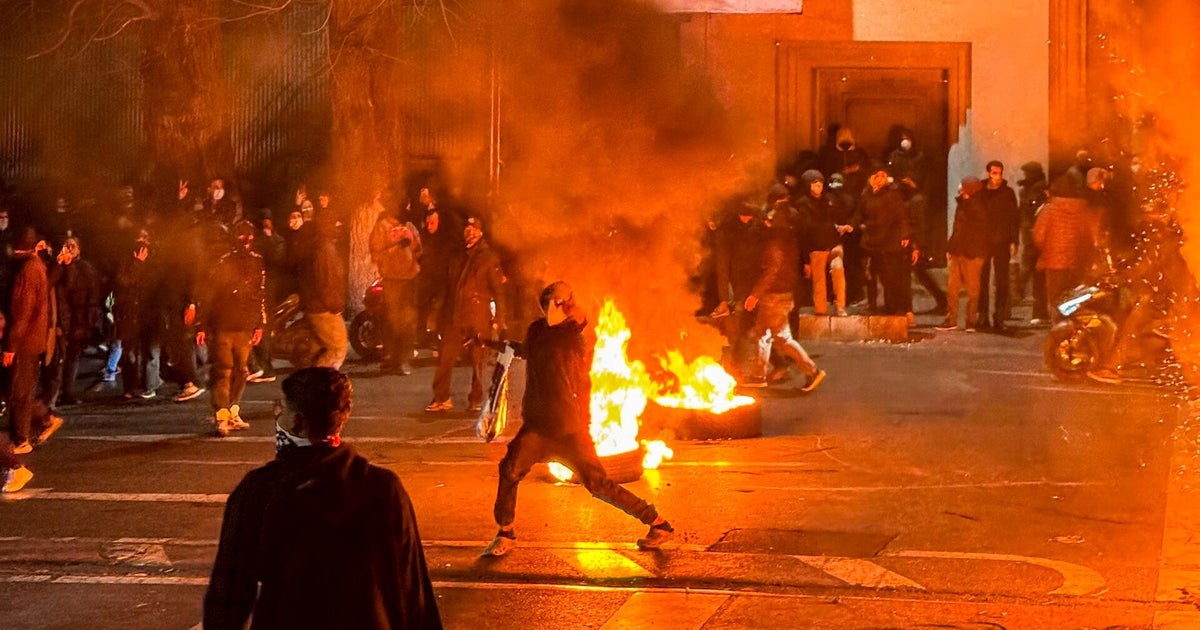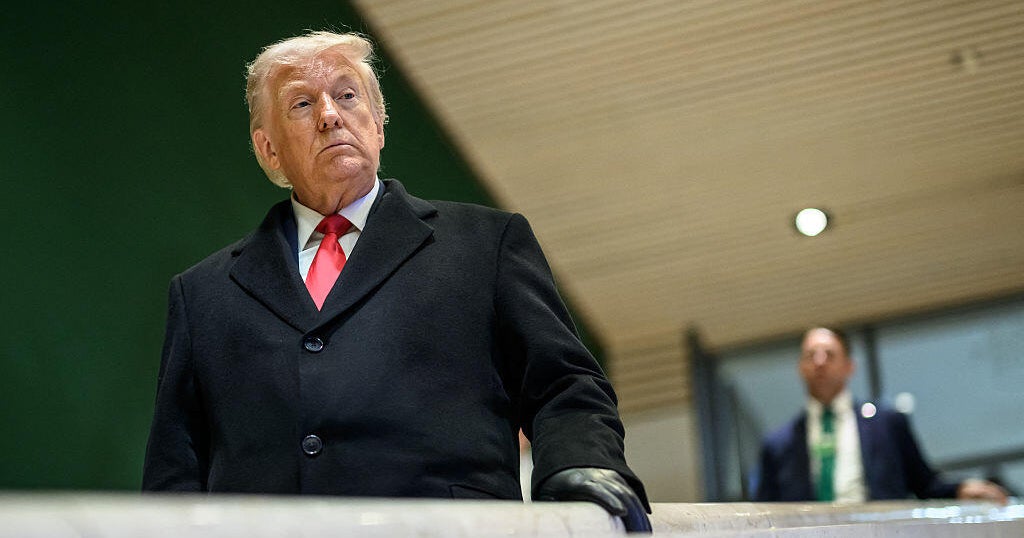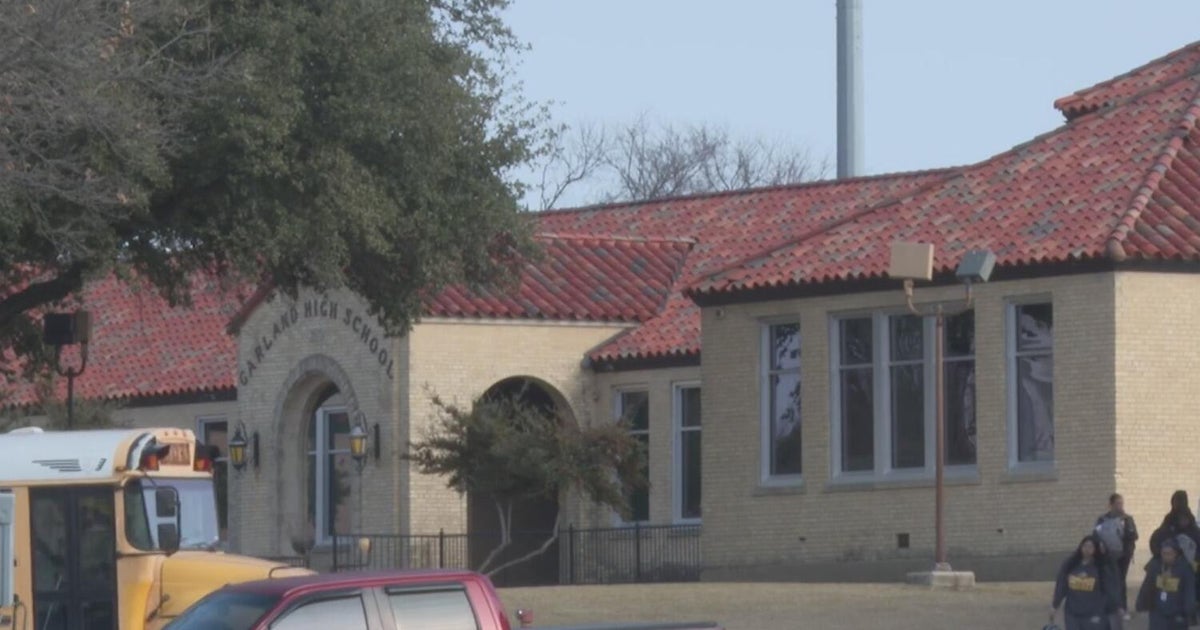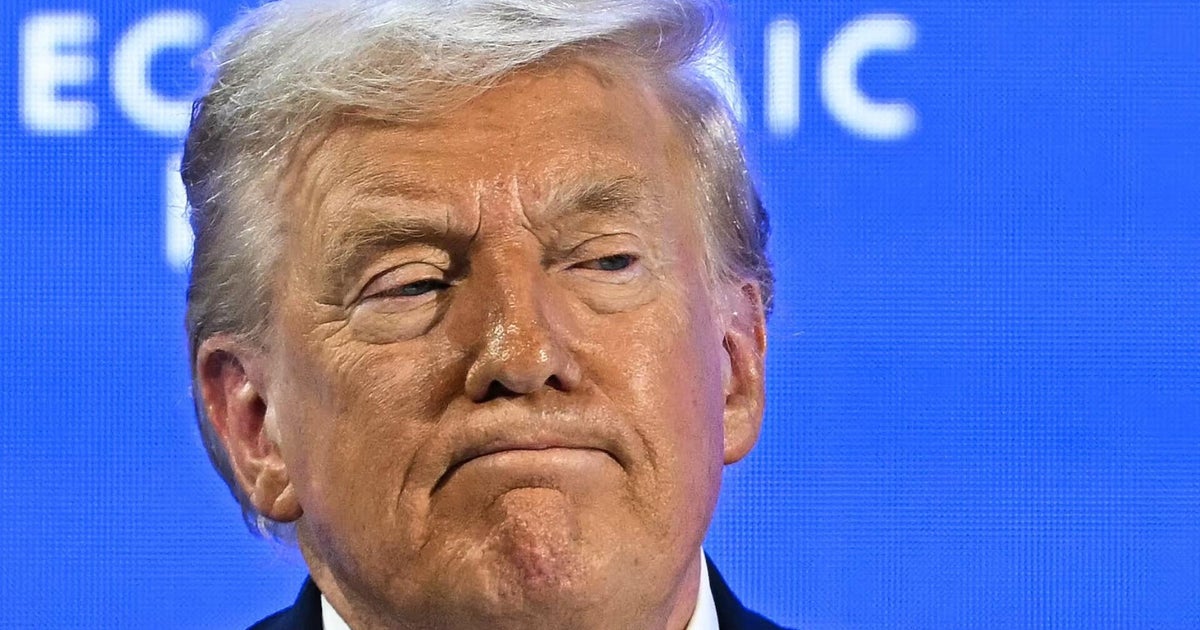Iran hails departure of "tyrant" Trump, says ball "in America's court" in nuclear standoff
Tehran — Iran's President Hassan Rouhani on Wednesday hailed the White House departure of "tyrant" Donald Trump, saying that "the ball is in America's court" to return to a landmark nuclear deal and lift sanctions on Tehran. Mr. Trump was due to leave office later in the day making way for President-elect Joe Biden, whose team has expressed a willingness to return to dialogue with Tehran.
A "tyrant's era came to an end and today is the final day of his ominous reign," Rouhani said in televised remarks to his cabinet.
He labelled Mr. Trump "someone for whom all of his four years bore no fruit other than injustice and corruption and causing problems for his own people and the world."
During his presidency, Mr. Trump led a campaign of "maximum pressure" against Iran, pulling Washington out of a landmark nuclear deal with Tehran in 2018 and reimposing punishing sanctions. The sanctions targeted Iran's vital oil sales and international banking ties, plunging its economy into a deep recession.
The nuclear deal, agreed between major powers and Iran in 2015 when Mr. Biden was vice president under Barack Obama, imposed clear limits on Iran's nuclear activities in exchange for relief from international sanctions.
Since 2019, Tehran has suspended its compliance with most of the limits set by the agreement, deliberately flouting violations of them, in response to Washington's abandonment of sanctions relief and the failure of the other parties to make up for it.
"Ball is in America's court"
Rouhani said Trump's political career had "died... but the JCPOA is alive," referring to the agreement's official name, the Joint Comprehensive Plan of Action. "He did all he could to destroy the JCPOA but could not."
"We expect (the Biden administration) to return to law and to commitments, and try in the next four years, if they can, to remove the stains of the past four years," Rouhani added.
Mr. Biden's pick for Secretary of State, Anthony Blinken, said at a Senate confirmation hearing on Tuesday that Mr. Trump's policies had made Iran "more dangerous."
Blinken confirmed Mr. Biden's desire for Washington to return to the nuclear agreement, but said that was conditional on Tehran's return to strict compliance with its commitments.
Tehran has repeatedly called on Washington to lift sanctions first and respect its own obligations under the agreement.
It has said it will then return to full compliance.
"Mr. Biden should know that his responsibility is to lift these sanctions," Foreign Minister Mohammad Javad Zarif told reporters after the cabinet meeting.
Rouhani too said "the ball is in America's court" and emphasized that when Washington starts to carry out its commitments "we too will act on our commitments."
"If they return to the law, our response will be positive as well," Rouhani said.
Pressure in Washington
Among the measures imposed by the Trump administration that have infuriated Iran was the formal designation of its elite Revolutionary Guard military unit as a terrorist entity. The formal designation puts an international squeeze on the unit's finances by sanctioning any business dealings with it.
On Tuesday, Senator Ted Cruz asked Blinken if the incoming administration would rescind the designation and "allow all that money to flow back and fund terrorism." CBS News correspondent Christina Ruffini says Blinken told the Senators that he didn't believe it would be wise to reverse the move, but argued that U.S. antiterrorism measures should not preclude re-joining the JCPOA.
Blinken also said sanctions against Iran were more effective when U.S. allies were on board with them, which, as Ruffini noted, they currently are not, with many still hugely frustrated over the Trump administration's unilateral withdrawal from the nuclear deal they spent more than a year negotiating with the previous White House.
Senator James Risch, another Republican, called the original JCPOA terms "misplaced," echoing a frequent criticism of the deal for not curbing Iran's support for proxy groups in the Middle East, and it's limited constraints on the Islamic Republic's non-nuclear weapons activities.
"Any new deal with Iran must address all facets of Iranian bad behavior," Risch said.
But Blinken made it clear that under Mr. Biden, if Iran took the first step and came back into compliance with the terms of the JCPOA as currently written, "we would, too."
"But we would use that as a platform to seek a longer and stronger agreement, but also to capture these other issues, particularly with missiles and other destabilizing activity," Blinken told the senators, adding: "We are a long way from there."
Blinken vowed to consult not only with American lawmakers, but to renew close cooperation with America's international allies as the process developed.

